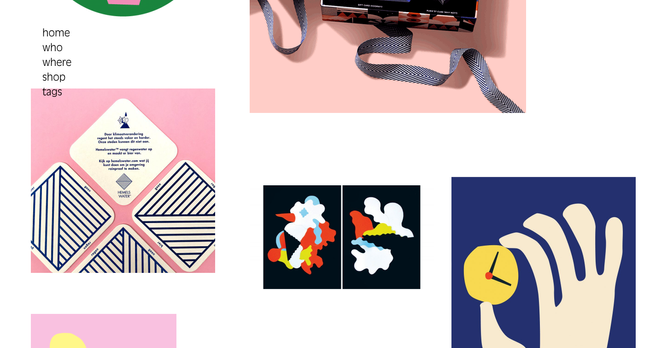Blogging is also still a great, organic method of self-promo online, and the best thing is, there is a load of free blogging platforms out there to get you started. Here you'll find the best the web has to offer, including details to help you decide which free blogging site is right for you.
In this round-up, we explore the best free blogging platforms for newcomers who want to get a blog up and running.
You get 500MB storage and 1GB bandwidth with a free Wix account. If you need more – plus other features like your own domain, and the online store and Google Analytics – then take a look at its premium plans.
The Joomla community is much smaller than the WordPress community, so there are fewer themes and add-ons than for WordPress.
Getting started is easy, with dozens of customizable templates to choose from, a straightforward site builder for putting everything together, flexible layouts and drag-and-drop widgets.
Making your blog with Jekyll avoids the need to work with technicalities such as databases, upgrades and so on, so there are fewer things to go wrong, and you can build something completely from scratch.
Newcomers might find WordPress a touch bewildering initially, but it's the best free option for anyone wanting a great mix of power, customization, and usability. To help you out, we've rounded up the best WordPress tutorials and the best free WordPress themes to get you started.
What is a blogging platform?
A blogging platform is a service or application that facilitates the creation of web pages for publishing your content. These content management systems come in the form of website builders like Wix, blogging applications like Wordpress, or simplified blogging software like Tumblr.1. Wix
If you want to get started with your free blog, Wix is well worth a look. This drag-and-drop website builder offers over 500 designer-made templates as well as plenty of additional features and apps, along with top-grade hosting so you can rest assured your site will be there when you need it.You get 500MB storage and 1GB bandwidth with a free Wix account. If you need more – plus other features like your own domain, and the online store and Google Analytics – then take a look at its premium plans.
2. Joomla
Open-source software content management system Joomla is a popular choice among the blogging community. Powerful and flexible, Joomla can be used to build any kind of website or blog, with design features including the ability to create your own template and render HTML for objects/arrays of data.The Joomla community is much smaller than the WordPress community, so there are fewer themes and add-ons than for WordPress.
3. Yola
Yola limits you a bit if you have grand plans for your blog – you can only have two sites and three web pages with its free plan – but the upside is a healthy 1GB of storage and bandwidth, and your site won't be littered with unsightly third-party ads.Getting started is easy, with dozens of customizable templates to choose from, a straightforward site builder for putting everything together, flexible layouts and drag-and-drop widgets.
you might also like: how to become a front end developer, ux design process, software outsourcing companies
4. Hubpages
Hubpages is a network of sites that enable bloggers (or Hubbers) to share their story with a vast open community. It has an Arts and Design section, which will be a happy home for creative bloggers, and Hubpages majors on its ability to connect its users with a wide audience and earn revenue from ads and affiliates.5. Contentful
Nobody knows how they're going to want to display their articles a few years down the line, so Contentful provides a way to separate your content from your design. It calls this an 'API-first' approach, so your content is stored on its servers and you can call it into any design or platform as you like.6. Jekyll
Jekyll takes your raw text files, which may be written in markdown, if you like, and turns them into a robust static site to host wherever you want. It's the engine behind GitHub Pages, which means you can host your blog on there for free.Making your blog with Jekyll avoids the need to work with technicalities such as databases, upgrades and so on, so there are fewer things to go wrong, and you can build something completely from scratch.
7. WordPress
If the folks over at WordPress are to be believed (and they seem suitably trustworthy sorts), the platform now 'powers' almost a third of the internet. It's easy to see why: on WordPress.com, you can rapidly create an entirely free blog, with a reasonable amount of customization.Newcomers might find WordPress a touch bewildering initially, but it's the best free option for anyone wanting a great mix of power, customization, and usability. To help you out, we've rounded up the best WordPress tutorials and the best free WordPress themes to get you started.
8. Tumblr
To some extent, Tumblr feels a bit like a halfway house between WordPress and Twitter. It offers more scope than the latter but tends to favor rather more succinct output than the former.
Decent mobile apps make it easy to submit content to a Tumblr blog from anywhere, though, and it's reasonably easy to customize your theme to make it your own. Tumblr also has a strong social undercurrent, via a following model combined with notes and favorites.












No comments:
Post a Comment